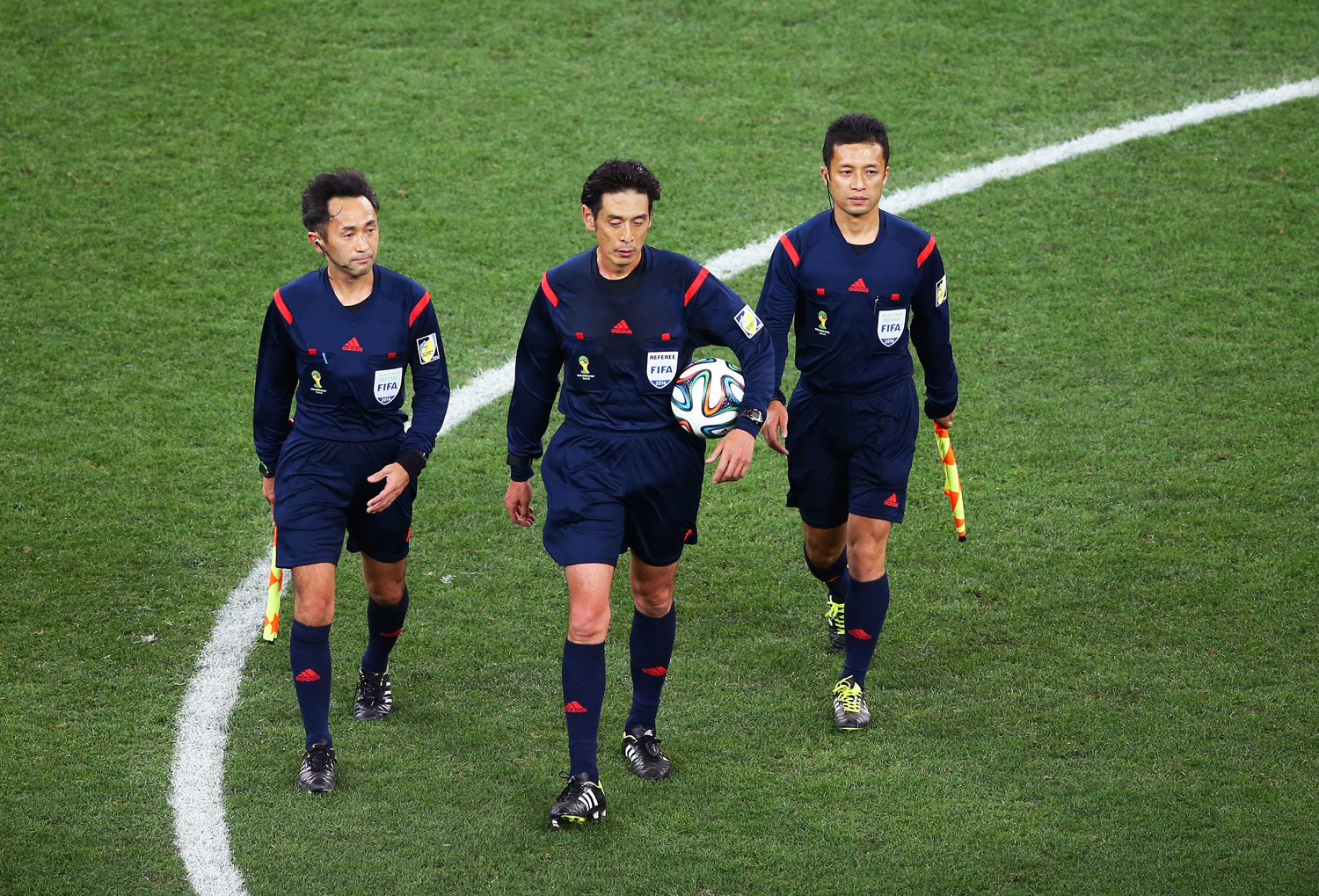
Updated: June 13, 7:17 a.m. ET
With the FIFA World Cup 2014 now in play, pretty much all the attention is on the greats and the underdogs and the scandals. But what about the refs? In addition to making tough, often unpopular calls, they are undercover athletes, running as much as 6 miles per game to keep up with the ball, Runner’s World reports.
For the 90 minute games, a referee must stay at least 20 yards from the ball at all times, and with the best soccer players in the world on the field, that adds up to a lot of ball chasing. “The closer we are to the ball, the more credibility we have in our decisions,” Greiger, 39, told the running enthusiast website. He is the first American referee to officiate a World Cup game since 2002.
That means refs need to train—hard. The Professional Referee Organization (PRO), which Geiger is part of, has high standard for its refs, pairing them with trainers who lead them in high intensity interval workouts and analyze their “strength levels, explosive levels, [and] aerobic levels,” according to Runner’s World. And before referees even reach the World Cup pitch, they must complete FIFA’s required fitness test.
Maybe during this year’s World Cup, viewers will think about walking a mile in the referees shoes—or six.
More Must-Reads From TIME
- What Student Photojournalists Saw at the Campus Protests
- How Far Trump Would Go
- Why Maternity Care Is Underpaid
- Saving Seconds Is Better Than Hours
- Welcome to the Golden Age of Ryan Gosling
- Scientists Are Finding Out Just How Toxic Your Stuff Is
- The 100 Most Influential People of 2024
- Want Weekly Recs on What to Watch, Read, and More? Sign Up for Worth Your Time
Contact us at letters@time.com